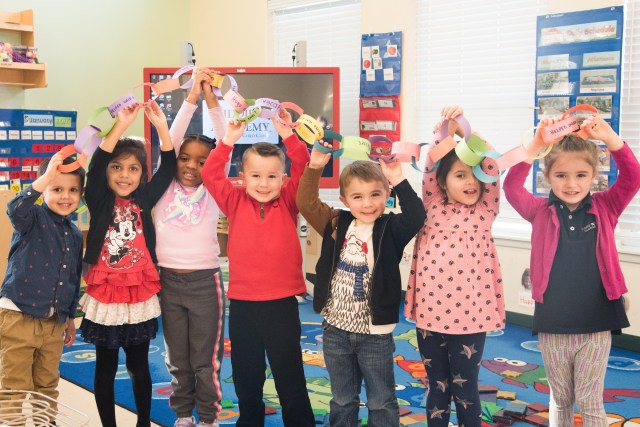All humans are unique. In childhood, there are obvious traits like skin tone, hair color and heritage but our differences come to light through temperament, interests and speed of development. As we continue to grow, our individualities become more refined, and we all develop into a puzzle piece that fits perfectly into the world in which we live.
Noticing what makes each person a unique individual is an important awareness to develop at a young age. When we notice what makes each person different, we can begin to accept, appreciate and show kindness toward the unique personalities we encounter every day.
How do we teach our children to recognize and celebrate each other’s differences? First, by exposing them to different talents, cultures, belief systems, appearances and opinions. And second, by practicing kindness with them and around them.
How to Expose Your Kids to People Different than Themselves
There are many books and toys we can use to teach children about uniqueness. Books in particular are an awesome tool for focusing on different lifestyles and abilities because when children read about a character who is dissimilar to them, the opportunity for questions and discussion arises. When children play, they can lean into their own uniqueness, as different toys help them find out what interests them and what they enjoy. Playing also encourages kids to use their imagination, socialize and ask questions.
Here are three books to help us teach our little ones about their unique differences:
1. The Things I Can Do by Jeff Mack: An engaging read that highlights all the great things each of us can do through the character’s point-of-view.
2. Giraffes Can’t Dance by Giles Andreae: A sweet story that talks about recognizing and appreciating the special skills we each have and acceptance of others’ differences.
3. The Wonky Donkey by Craig Smith: A silly book that talks about the different unique traits of a fun main character.
Here are three toys and games that expose young children to diversity:
1. Basket of Babies: Baby dolls that introduce children to a variety of skin colors.
2. Cre8tive Minds Marvel Education Friends with Diverse Abilities Figure Set: Figurines that normalize many physical disabilities.
3. Friends and Neighbors: The Helping Game: A game that helps children learn about emotions and how to be empathetic toward others.
Always Practice Kindness
To raise kind humans, we must be kind ourselves. The Random Acts of Kindness Foundation says that “kindness is contagious” and children aren’t immune! Creating an environment of respect and acceptance in our homes and showing our kids how to be kind can make a big impact on their attitudes toward others outside the home. Engaging in “uniqueness-focused” activities with your kids is an additional way to celebrate individuality and learn how to respect what makes others different, too.
Here are three recommended activities to celebrate uniqueness in your home:
1. Help your children feel comfortable and confident expressing their individualities by allowing them to select their own clothes for the day, encouraging them to share their likes and dreams and showing interest in the things that interest your children.
2. Experience other cultures by making different foods that relate to a holiday celebrated somewhere around the world, listening to music from another continent, trying to speak another language or even taking a trip to another country.
3. Perform a random act of kindness for a neighbor or someone you don’t know to show your children how good it feels to do something kind for someone different than you.
The Kiddie Academy Educational Child Care Character Essential for February is “We Are Unique.” For more information about helping your kids identify their special personal traits and how to teach kindness, download the Character Essentials Activity Book for free.











